BMW i7 VS VW Polo
BMW i7
The new BMW i7 epitomises luxury and innovation, seamlessly blending advanced technology with elegant design. Its interior offers an unparalleled experience, with premium materials and cutting-edge features that create a tranquil yet engaging atmosphere for both driver and passengers. The i7's performance is both dynamic and efficient, demonstrating BMW's commitment to sustainable driving without compromising on the exhilarating drive the brand is known for.
more informationVW Polo
The VW Polo remains a popular choice in the compact car segment, known for its sleek design and sophisticated styling. Inside, it offers a surprisingly spacious cabin with high-quality materials and intuitive technology features, ensuring a comfortable driving experience. Its agile handling and responsive performance make it an excellent option for both city commuting and longer journeys.
more information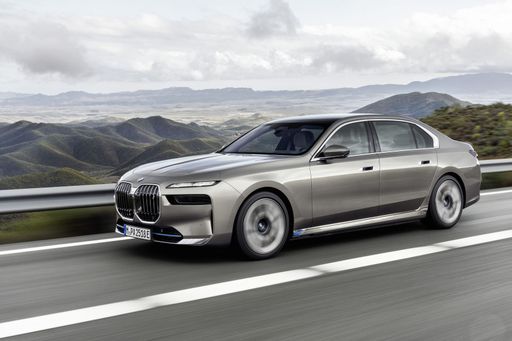 @ press.bmwgroup.com
@ press.bmwgroup.com
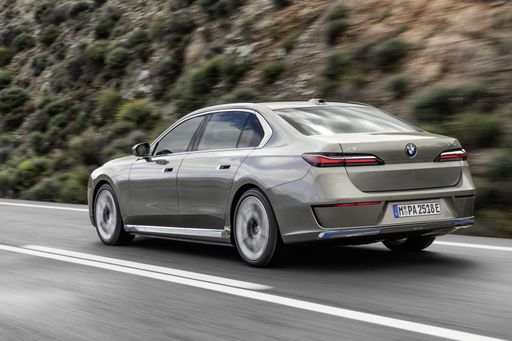 @ press.bmwgroup.com
@ press.bmwgroup.com
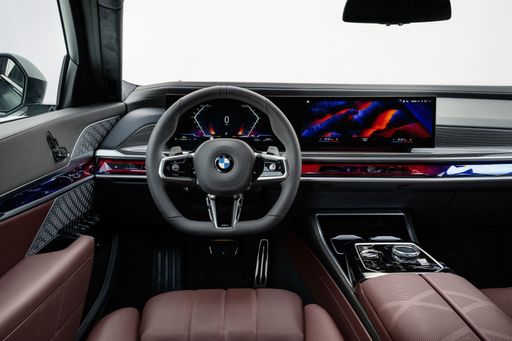 @ press.bmwgroup.com
@ press.bmwgroup.com
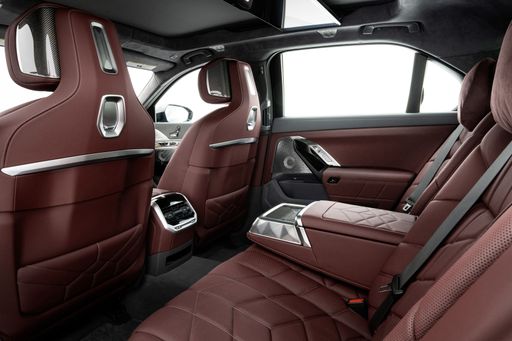 @ press.bmwgroup.com
@ press.bmwgroup.com
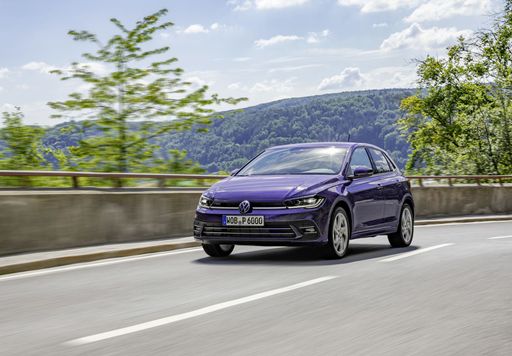 @ Volkswagen
@ Volkswagen
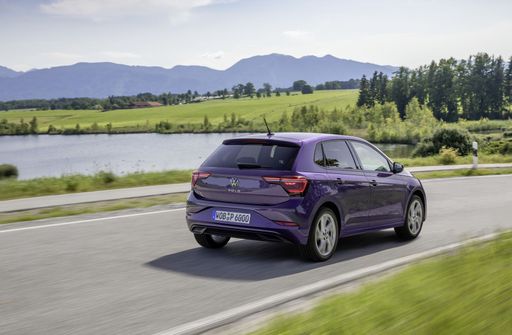 @ Volkswagen
@ Volkswagen
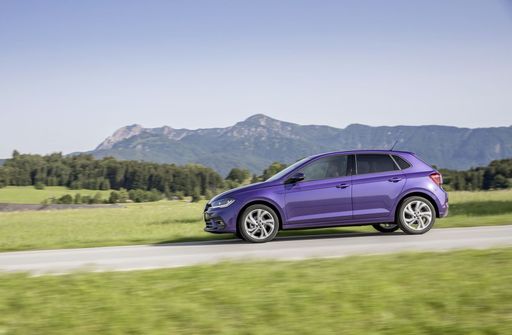 @ Volkswagen
@ Volkswagen
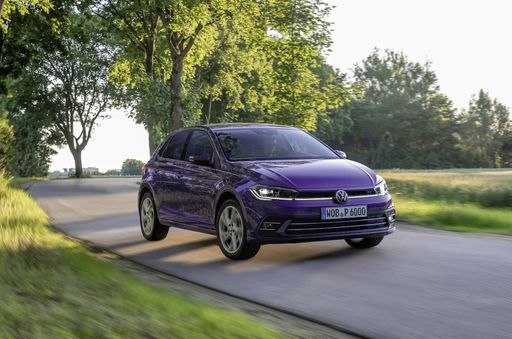 @ Volkswagen
@ Volkswagen
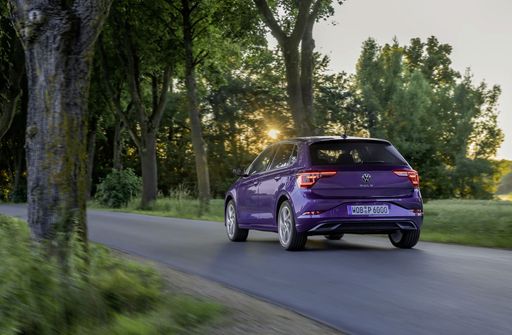 @ Volkswagen
@ Volkswagen
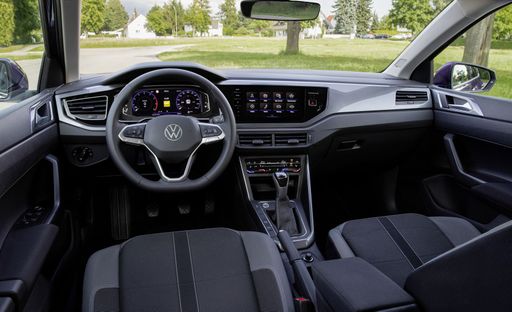 @ Volkswagen
@ Volkswagen
Costs and Consumption |
|
|---|---|
|
Price
about 106900 - 168100
$
|
Price
about 18300 - 32800
$
|
|
Consumption L/100km
-
|
Consumption L/100km
5.2 - 6.5
L
|
|
Consumption kWh/100km
18.5 - 20.8
kWh
|
Consumption kWh/100km
-
|
|
Electric Range
559 - 623
km
|
Electric Range
-
|
|
Battery Capacity
101.7
kWh
|
Battery Capacity
-
|
|
co2
0
g/km
|
co2
118 - 149
g/km
|
|
Fuel tank capacity
-
|
Fuel tank capacity
40
L
|
Dimensions and Body |
|
|
Body Type
Sedan
|
Body Type
Hatchback
|
|
Seats
5
|
Seats
5
|
|
Doors
4
|
Doors
5
|
|
Curb weight
2595 - 2770
kg
|
Curb weight
1138 - 1372
kg
|
|
Trunk capacity
500
L
|
Trunk capacity
351
L
|
|
Length
5391
mm
|
Length
4074
mm
|
|
Width
1950
mm
|
Width
1751
mm
|
|
Height
1544
mm
|
Height
1431 - 1451
mm
|
|
Payload
480 - 535
kg
|
Payload
399 - 457
kg
|
Engine and Performance |
|
|
Engine Type
Electric
|
Engine Type
Petrol
|
|
Transmission
Automatic
|
Transmission
Manuel, Automatic
|
|
Transmission Detail
Reduction Gearbox
|
Transmission Detail
Manual Gearbox, Automat. Schaltgetriebe (Doppelkupplung)
|
|
Drive Type
Rear-Wheel Drive, All-Wheel Drive
|
Drive Type
Front-Wheel Drive
|
|
Power HP
455 - 660
HP
|
Power HP
80 - 207
HP
|
|
Acceleration 0-100km/h
3.7 - 5.5
s
|
Acceleration 0-100km/h
6.5 - 15.6
s
|
|
Max Speed
205 - 250
km/h
|
Max Speed
171 - 240
km/h
|
|
Torque
650 - 1100
Nm
|
Torque
93 - 320
Nm
|
|
Number of Cylinders
-
|
Number of Cylinders
3 - 4
|
|
Power kW
335 - 485
kW
|
Power kW
59 - 152
kW
|
|
Engine capacity
-
|
Engine capacity
999 - 1984
cm3
|
|
Top speed
205 - 250
km/h
|
Top speed
171 - 240
km/h
|
General |
|
|
Model Year
2022 - 2023
|
Model Year
2024
|
|
CO2 Efficiency Class
A
|
CO2 Efficiency Class
D, E
|
|
Brand
BMW
|
Brand
VW
|
BMW i7
The Pinnacle of Electric Luxury: BMW i7
Introducing the BMW i7, the latest in electric innovation from one of the world's premier automobile manufacturers. Blending cutting-edge technology with luxurious comfort, the i7 represents a significant leap forward in the electric vehicle (EV) market. This article delves into the technical specifications and innovative features that set the BMW i7 apart from its competitors.
Powerful Electric Performance
Under the sleek exterior of the BMW i7 lies a powerhouse of electric capabilities. Depending on the model configuration, the i7 offers between 455 and 660 PS, with a torque of up to 1100 Nm. This ensures an exhilarating driving experience, whether you choose the rear-wheel drive or all-wheel drive configuration. The acceleration is equally impressive, with the i7 capable of going from 0 to 100 km/h in just 3.7 to 5.5 seconds.
Efficient Energy Consumption
The efficiency of the BMW i7 is noteworthy, with an energy consumption ranging from 18.5 to 20.8 kWh/100 km. This efficiency, combined with a substantial battery capacity of 101.7 kWh, gives the i7 an electric range of between 559 and 623 kilometres. BMW’s commitment to sustainability is further underscored by its zero CO2 emissions, reinforcing its status as a premium yet environmentally conscious choice.
Sophisticated Interior and Technology
Inside, the BMW i7 is the epitome of luxury. With seating for five, the interior exudes elegance and comfort. Advanced technology is at your fingertips with features such as the latest iDrive system, providing seamless connectivity and enhanced control over vehicle functions. The i7 ensures you travel in style with its sophisticated Design Pure Excellence, M Sport package, and M Sport package Pro interior trims.
Dimensions and Capacity
The i7’s ample dimensions – with a length of 5391 mm, width of 1950 mm, and height of 1544 mm – are matched by its generous luggage capacity of 500 litres, ensuring practicality alongside luxury. The car's robust build is complemented by a payload capacity of between 480 to 535 kg, ensuring the i7 is as functional as it is stylish.
Cost and Efficiency
With prices ranging from €115,700 to €181,800, the i7 is positioned as a high-end vehicle offering value through its advanced features and performance. The monthly operating costs range between €2,143 and €3,027, while the cost per kilometre is approximately 85.7 to 121.1 cents. Despite its upscale market positioning, the i7 offers competitive efficiency with its remarkable CO2 emission-free driving and energy-saving technologies.
Conclusion
The BMW i7 stands as a testament to the brand’s innovation and dedication to sustainable luxury. By marrying performance, efficiency, and cutting-edge technology, BMW has ensured that the i7 not only meets but exceeds the expectations of discerning EV enthusiasts. The i7 is not merely a car; it is a statement of intent in the future of sustainable luxury. Experience the future today with the BMW i7.
VW Polo
Unveiling the VW Polo: A Compact Car with Big Ambition
The VW Polo, with its sleek hatchback design, stands out in the compact car segment, offering a blend of practicality and innovation. Volkswagen has continued to refine this popular model, ensuring that each new iteration provides cutting-edge technology and enhanced driving dynamics.
A Closer Look at the Mechanics
Under the bonnet, the VW Polo offers a series of efficient petrol engines ranging from 80 to 207 horsepower. These engines, coupled with either a manual or dual-clutch automatic transmission, provide a smooth and responsive driving experience tailored to various driving preferences.
Efficiency Meets Performance
The fuel consumption of the VW Polo is impressively economical, varying between 5.2 and 6.5 litres per 100 km, depending on the engine and transmission combination. Emphasising the car's commitment to sustainability, the CO2 emissions vary between 118 to 149 g/km, placing it within the D to E efficiency classes.
Design and Dimensions
The Polo's dimensions, featuring a length of 4074 mm, width of 1751 mm, and a height ranging from 1431 to 1451 mm, offer a compact profile ideal for urban driving. Despite its size, the Polo provides a generous 351-litre boot space, catering to everyday needs and beyond. With a five-door configuration, it balances convenience and style.
Advanced Features and Variants
The VW Polo 2024 model year comes with a variety of trim levels, from the practical "Life" to the sportier "R-Line", each bringing distinct features and enhancements. High-tech interiors, usability enhancements, and a host of driver-assistance systems are standard, reflecting Volkswagen's dedication to integrating innovation into its vehicles.
Tech-Savvy Interiors
Inside, the Polo is equipped with modern infotainment systems, Apple CarPlay, Android Auto, and wireless connectivity options, ensuring that drivers and passengers remain connected while on the move. The ergonomically designed cabin and digital cockpit enhance the user experience, making every drive comfortable and intuitive.
Conclusion: The All-Rounder in the Compact Car Market
The VW Polo continues to be a compelling choice for those seeking a compact, reliable, and technologically advanced vehicle. With its range of engines, well-appointed interiors, and a robust suite of features, the Polo remains a significant player in its class, meeting the demands of a wide range of drivers.
